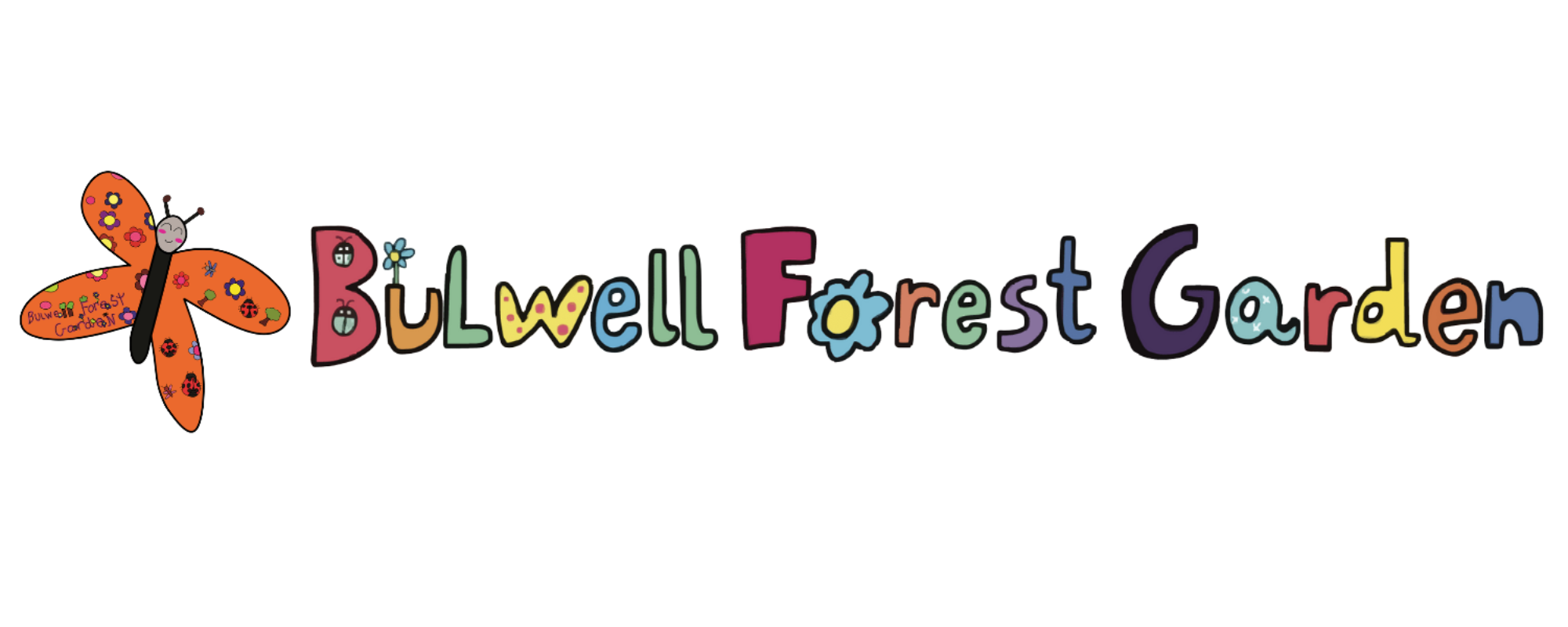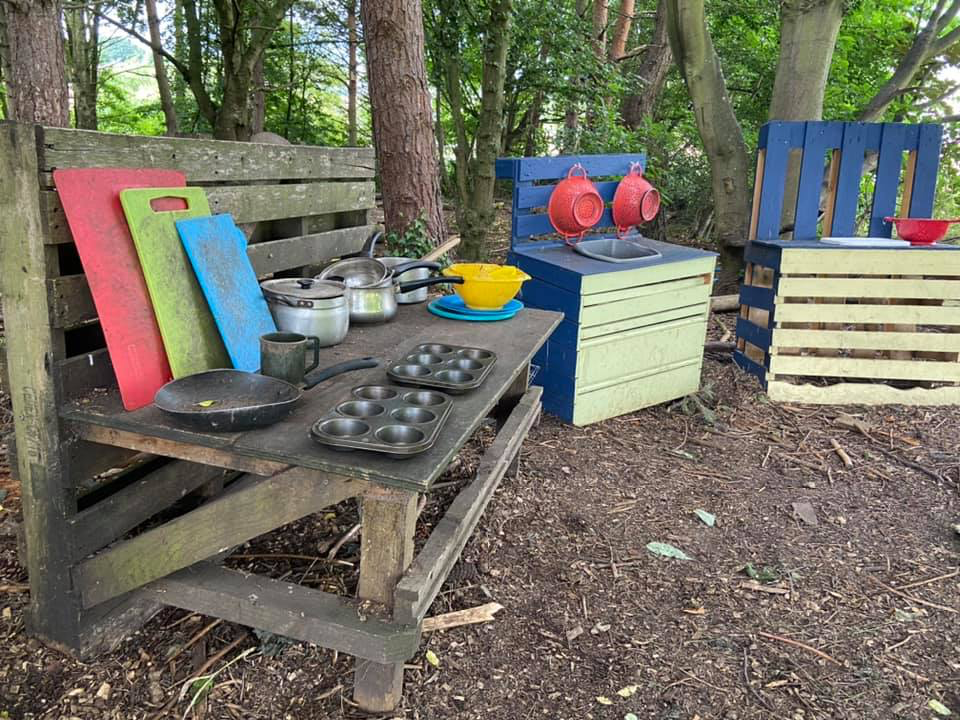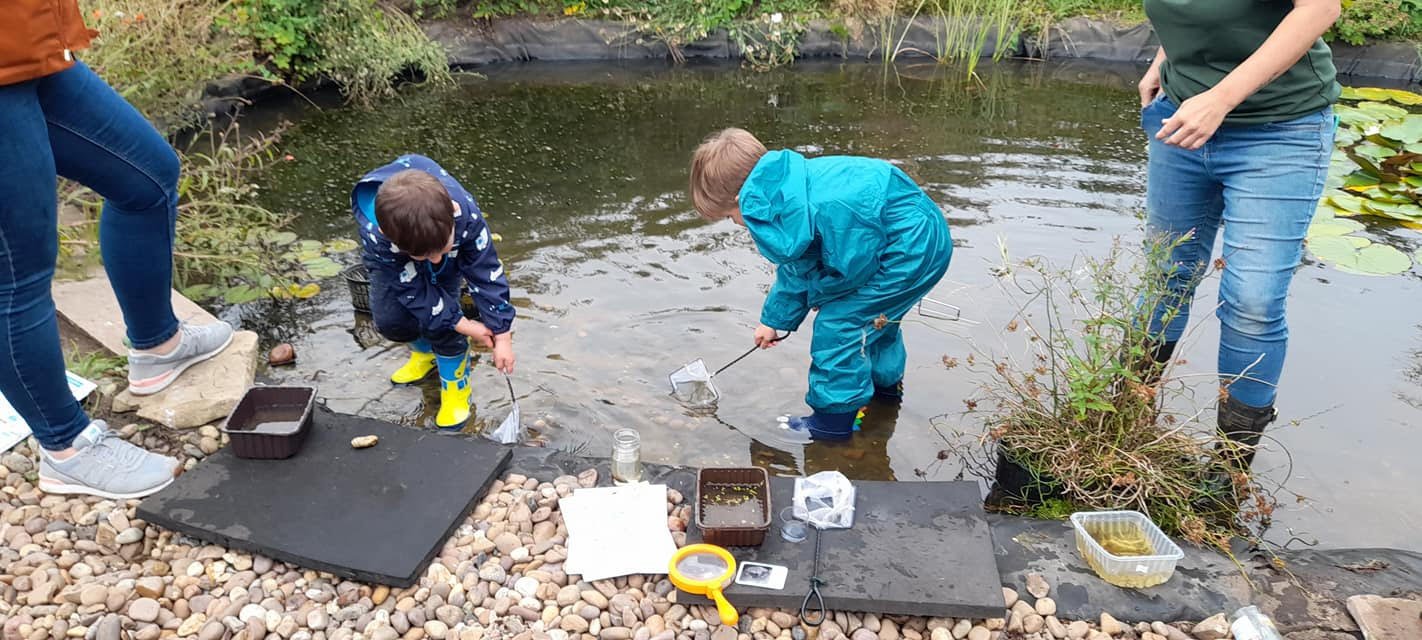School Visits
We offer a range of educational opportunities linked to the National Curriculum and led by qualified practitioners which focus on play and experiential learning to provide engaging, impactful outdoor learning experiences for primary school students. Our themed sessions can be adapted to meet the requirements of your group and we’re happy to mix-and-match activities from different sessions.
Read more about our EYFS and Primary School sessions below—you’ll find the curriculum links in each section.
As an addition to our curriculum linked sessions we have partnered up with local organisation, Urban Bushcraft, to provide a selection of immersive living history sessions:
SURVIVING THE STONE AGE - Experience the Stone Age like never before with our thrilling bushcraft Stone Age session. Step back in time and discover how our ancient ancestors lived, hunted, and survived in the wilderness thousands of years ago. Led by experienced bushcraft experts, you'll learn how to make fire using primitive methods, create tools from natural materials, track and hunt animals like our Stone Age predecessors, identify plants and trees and recreate Stone Age art using natural pigments.
LEGENDS OF THE WILD - Embark on a captivating journey into the world of Robin Hood, where bushcraft skills and ancient folklore intertwine! This immersive outdoor session is thoughtfully designed to align with the UK primary curriculum, seamlessly blending history, folklore, and hands-on learning. Get ready to step into the enchanting realm of Sherwood Forest, where the legendary Robin Hood and his band of outlaws roamed. In this engaging bushcraft experience, students will immerse themselves in the enthralling tales of Robin Hood while mastering essential outdoor skills.
How much does a school visit cost?
£4.00 per student for schools in Bulwell / Bulwell Forest
£5.50 per student for all other schools
£5.00 / £6.00 per student for Living History Special Visits
How many students can we bring along?
Most groups are up to 30 students—let us know if you have a larger group
What times are the sessions?
Mondays and Wednesdays from 9:30 AM to 12:30 PM
(including lunch and free time)
Want to know more?
Email us at schools@bulwellforestgarden.co.uk
Ready to book a school visit with us? Send us a request today!
“The children have had an amazing time today and loved every minute—pond dipping and making micro habitats. The staff are so experienced and enthusiastic in what they do, we can't wait to return.”
- St. Mary's Primary School of Bulwell
“Bulwell Forest Gardens is a wonderful hideaway that provides vital opportunities for inner city children to become involved in the wonders of nature. Environment learning is enhanced because the children receive first-hand experience to witness seasonal change, life-cycles and begin to recognise the importance of preserving our landscapes. We are so grateful that we can come to explore vegetation and woodland whilst getting a welcome breath of fresh air. We have enjoyed finding out how plants grow and exploring our senses in your sensory garden. Many of our parents enjoyed learning about how to grow their own plants too! The children thoroughly relished being active by running through the willow, making dens, and climbing trees”
- Our Lady of Perpetual Succour Primary School
EYFS Outdoor Engagement Sessions
(PL) Practitioner-led activity (SL) Self-led activity
Super Worms
Dig deep into the world of worms in this session inspired by Julia Donaldson’s “Superworm”
Sit round the fire to read “Superworm” together and discuss the environmental impacts of composting (PL)
Create a class wormery—pupils work together using a step-by-step guide to create their own class wormery which can be taken back to the classroom and monitored weekly (SL)
Play “What Will the Worm Eat” game, learn mind-blowing worm facts, and maybe even conduct some Charles Darwin inspired experiments (PL)
Wild Science
Discover the strong links between science and the natural world
Sensory scavenger hunt—pupils pair up and use all five senses to explore our space, journal their findings, and share their sensory discoveries (SL)
Create paints and dyes from natural materials to produce a piece of art inspired by the garden (PL)
Observe and discuss the signs of the current season, then draw a seasonal key poster using seasonal association (SL)
The magic of plants and trees
Take a closer look at the magic world of plants and trees—how they communicate, share nutrients, and even battle each other to survive
Investigate the life cycles of plants using games and pictures (SL)
Explore the “wood wide web” and how trees secretly communicate with each other, consider the benefits of trees, and discover how we as humans have tree-like qualities (PL)
Learn about the most bizarre and unusual plants from around the world, how they’ve adapted to grow and thrive, and explore the garden to complete a bizarre plant checklist (SL)
Back to Basics Bushcraft
Students can build their own mini communities whilst exploring their surroundings
Split into teams (houses) to design and create a unique “coat of arms” on cotton headbands using the leaf bashing printing technique (PL)
Shelter building challenge—pupils work together to build their own shelters using either tarps and cord or natural materials (PL)
Explore the garden and match tree species to a simple classification key (SL)
Campfire cooking—bring a snack or some marshmallows to roast over a fire and enjoy together (PL)
Minibeasts
Spot common creepy-crawlies whilst roaming around the garden
Use magnifying glasses and pots to find, collect, and observe invertebrates that live in different habitats such as our woodland and pond (PL)
Complete a minibeast hunt checklist and learn fun-facts about the tiny creatures all around us (SL)
Discuss the lifecycles of our minibeasts, take part in a lifecycles game, and even have a go at replicating their habitats using clay models (PL)
Primary School Outdoor Engagement Sessions
(PL) Practitioner-led activity (SL) Self-led activity
Habitat Explorers
Dig deep into the habitats all around us—discuss human impact and how we can support nature in its recovery
Explore the characteristics of living things, food chains, habitats and micro-habitats, interdependence, as well as the positive and negative human influences on habitats (PL)
Play “match the animal to its habitat” game (SL)
Complete a habitat map of a section of Bulwell Forest Garden by using keys to identify and classify plants and animals, then replicate animal habitats using clay models (SL)
Wild Science
Discover the strong links between science and the untamed natural world
Dissect plants and flowers, observing their parts whilst discussing their functions and benefits (PL)
Sensory scavenger hunt—pupils pair up and use all five senses to explore our space, journal their findings, and share their sensory discoveries (SL)
Create a class wormery—pupils work together using a step-by-step guide to create their own class wormery which can be taken back to the classroom and monitored weekly (SL)
Play “What Will the Worm Eat” game, learn mind-blowing worm facts, and maybe even conduct some Charles Darwin inspired experiments (PL)
Create paints and dyes from natural materials to produce a piece of art inspired by the garden or a poem (SL)
Minibeasts
Spot common creepy-crawlies whilst roaming around the garden and completing a minibeast hunt checklist
Use magnifying glasses and pots to find, collect, and observe invertebrates that live in different habitats such as our woodland and pond—then draw one of the creatures you find and label the parts (SL)
Identify the minibeasts discovered using pictures or classification keys (age dependent) before digging deeper into classification and the eating habits of herbivores, omnivores, and carnivores (PL)
Discuss the lifecycles of our minibeasts, take part in a lifecycles game, and even have a go at replicating their habitats using clay models (PL)
The magic world of plants and trees
Take a closer look at the magic world of plants and trees—how they communicate, share nutrients, and even battle each other to survive
Investigate the life cycles of plants—germination, pollination (including the role of bees and butterflies as pollinators) and seed dispersal, whilst playing a fun seed dispersal game (PL)
Explore the “wood wide web” and how trees secretly communicate with each other, consider the benefits of trees, and discover how we as humans have tree-like qualities (PL)
Learn about the most bizarre and unusual plants from around the world, how they’ve adapted to grow and thrive, and explore the garden to complete a bizarre plant checklist (SL)
Back to Basics Bushcraft
Harness the power of nature and learn ancient skills during an immersive “survival” game—discover the four main aspects of survival and how to thrive in a woodland environment
Use geography skills to map out the garden and find the best spot to build a mini community (SL)
Shelter building challenge—pupils work together to build their own shelters using either tarps and cord or natural materials (SL)
Have a go at purifying dirty water—discuss different purification methods, the importance of hydration in a survival situation, and other methods of extracting water from our surroundings (PL)
Introduction to foraging—learn about personal safety, foraging law, and best practice before foraging in the garden for edible treats (PL)
Make a fire using ferro rods—learn how to collect wood, prepare and build on a fire, and manage fires safely with our environment in mind (PL)
Campfire cooking—bring a snack or some marshmallows to roast over a fire and enjoy together (PL)









